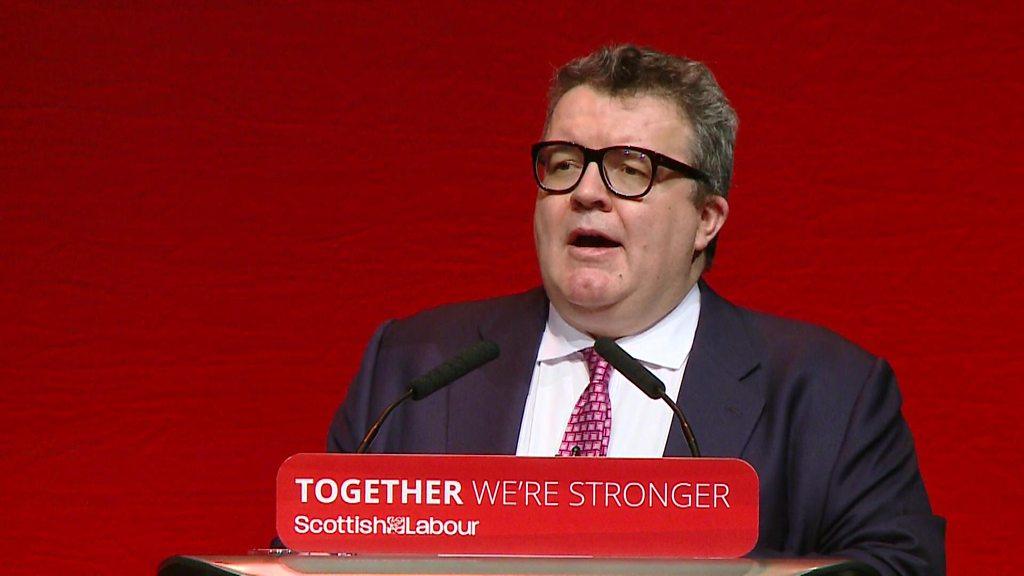Labour cards on table in constitutional debate
- Published
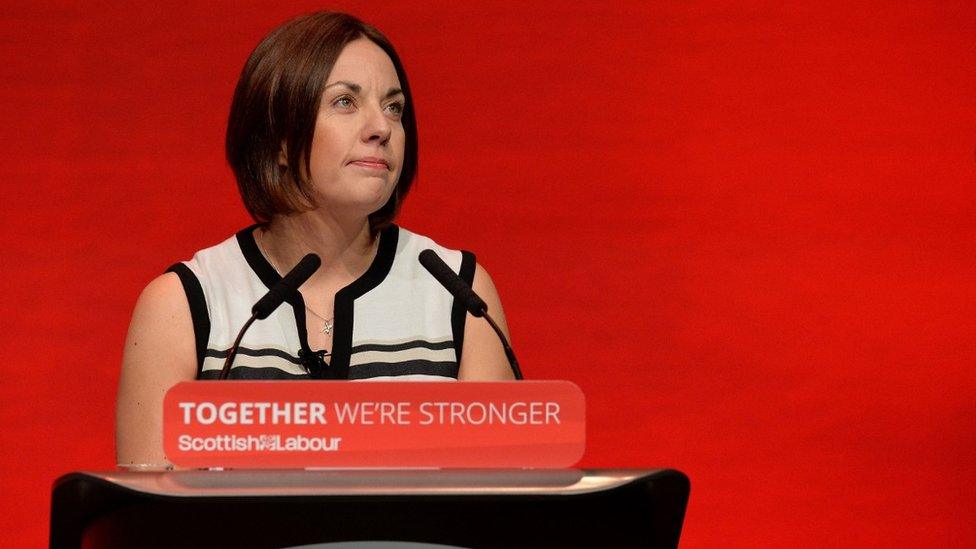
Ms Dugdale made her keynote speech at the party's annual conference in Perth
My history teacher at school was fond of quoting a song lyric which, as I recall, went as follows:
We don't want to fight but by Jingo if we do,
We've got the ships, we've got the men, we've got the money too.
It was, he informed us, the origin of the sentiment of Jingoism which stirred or appalled opinion in the 19th century, according to taste and inclination.
The words came into my head as I listened to Kezia Dugdale deliver her speech to Scottish Labour's annual conference in Perth. Not that Ms Dugdale is remotely jingoistic. Or militaristic.
No, it was another section entirely which prompted my thoughts to wander to a dusty classroom in the High School of Dundee, so many years ago.
The section? "We don't want to fight." Because Ms Dugdale resolutely stressed that she was not keen to engage in a further constitutional battle in Scotland, indyref2.
It was a bad thing. It was other than good. It was not desired by the people of Scotland. It was a mistake. It was not needed. It would not put bread on the table. It was a hissing and a byword.
Having thus denigrated constitutional politics, she proceeded to deliver a speech which dealt, very substantially, with….constitutional politics.
A conundrum? Yes, but perhaps also a dose of realism. Thus far, Labour has spent the time since the 2014 referendum and indeed the 2016 version urging a return to the politics of equality, the politics of economic reform.
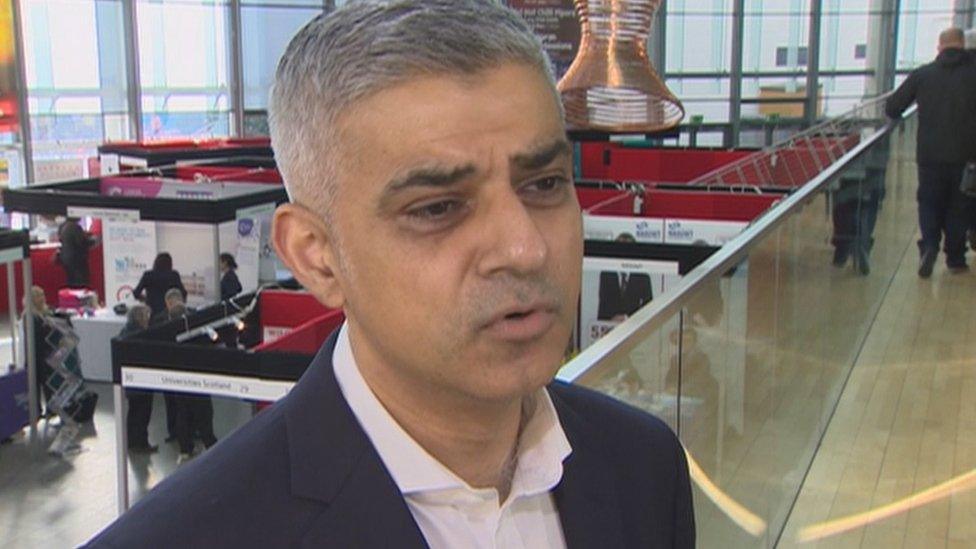
Mr Khan said he had not intended to insult the SNP
But the party has found it impossible to quieten the constitutional debate. Particularly since the Brexit vote. The Scottish government and, the SNP would say it is entirely legitimate to question whether Scotland was misled during the 2014 referendum by pro-Union arguments to the effect that the best way to sustain Scottish membership of the EU was to resist independence.
Now, Labour has concluded that, far from closing the debate down, the party needs a distinctive voice in that debate, a card on the table.
I discussed the nature of federalism yesterday - and would refer the sleepless to those meanderings. Perhaps I might simply add today that Labour's endeavour is designed to project a unique offer, clear from the pro-Union stance of the Conservatives. Not independence, then, but not unalloyed Unionism either.
The next stage? Labour's deputy leader Tom Watson backed the idea of a People's Convention across the UK. Expect moves towards that in the next weeks and months.
Introducing Ms Dugdale was Sadiq Khan, the Labour Mayor of London. The advance trail of his speech caused controversy. It was said he would argue there was "no difference in that respect between those who try to divide us on the basis of whether we're English or Scottish, and those who try to divide us on the basis of our background, race or religion".
First Minister Nicola Sturgeon said she had been a supporter of the mayor in the past but differed very sharply from his calculation of political equivalence on this occasion. It was an insult, she said, to the socially inclusive outlook of her party.
In the event, Mr Khan qualified his remarks in his speech by noting that he was "not saying that nationalists are somehow racist or bigoted - but now, more than ever - what we don't need is more division and separation."
In an interview with me, Mr Khan repeatedly insisted that he had not intended to insult the SNP but was merely stressing the need for unity. At conference, delegates defended him - but, privately, some wished he had found another form of words.
- Published25 February 2017
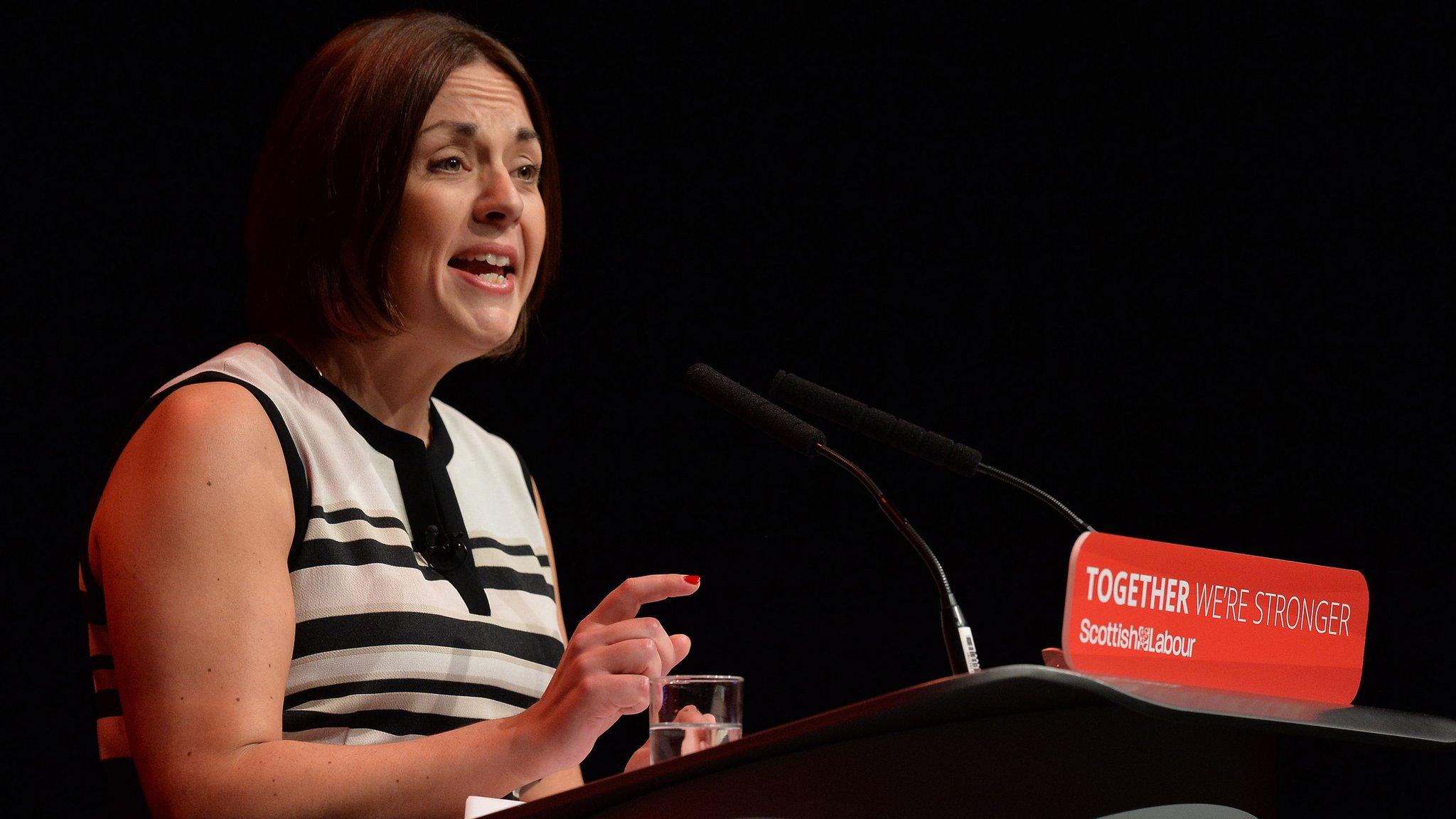
- Published25 February 2017
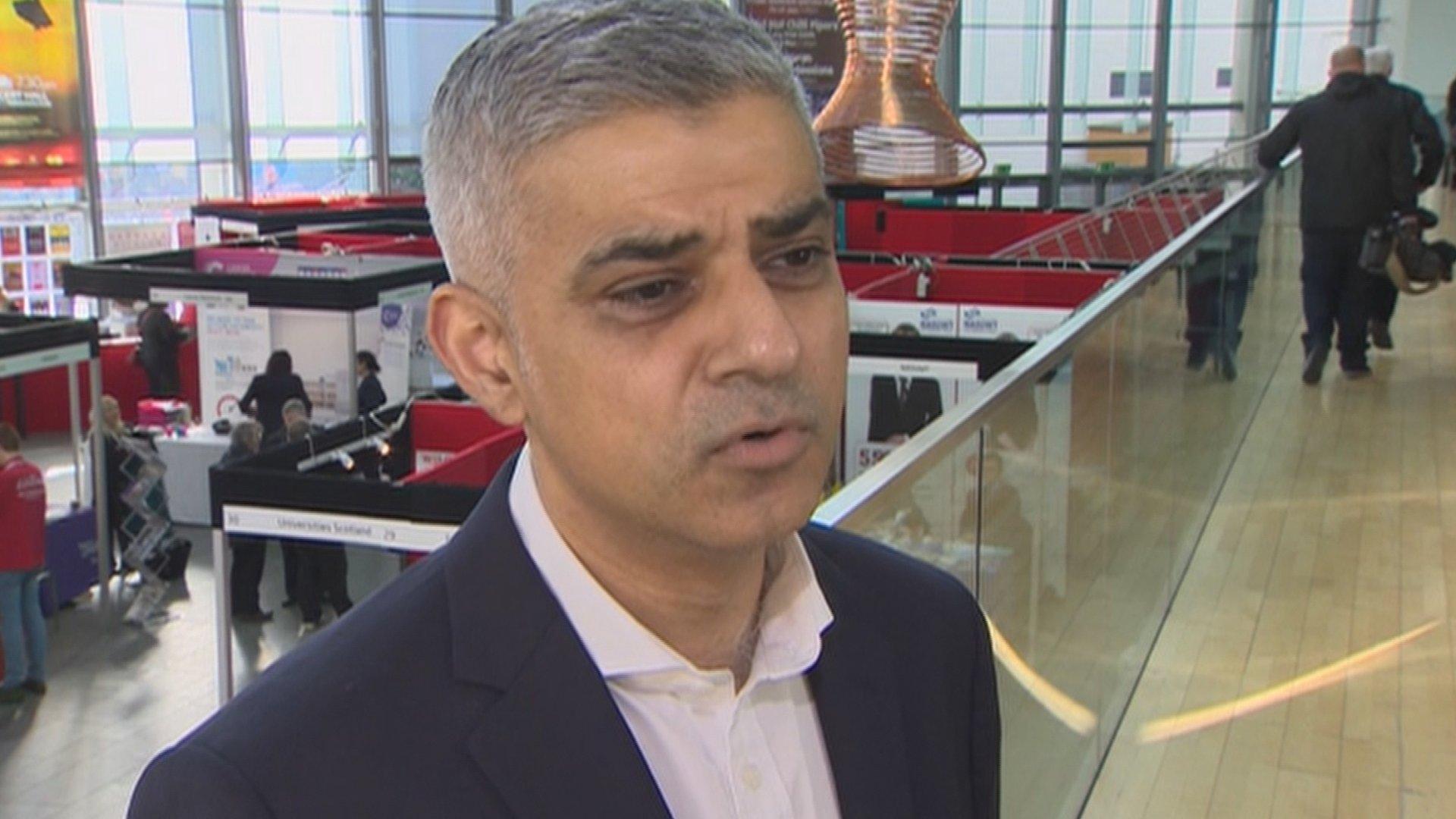
- Published25 February 2017
